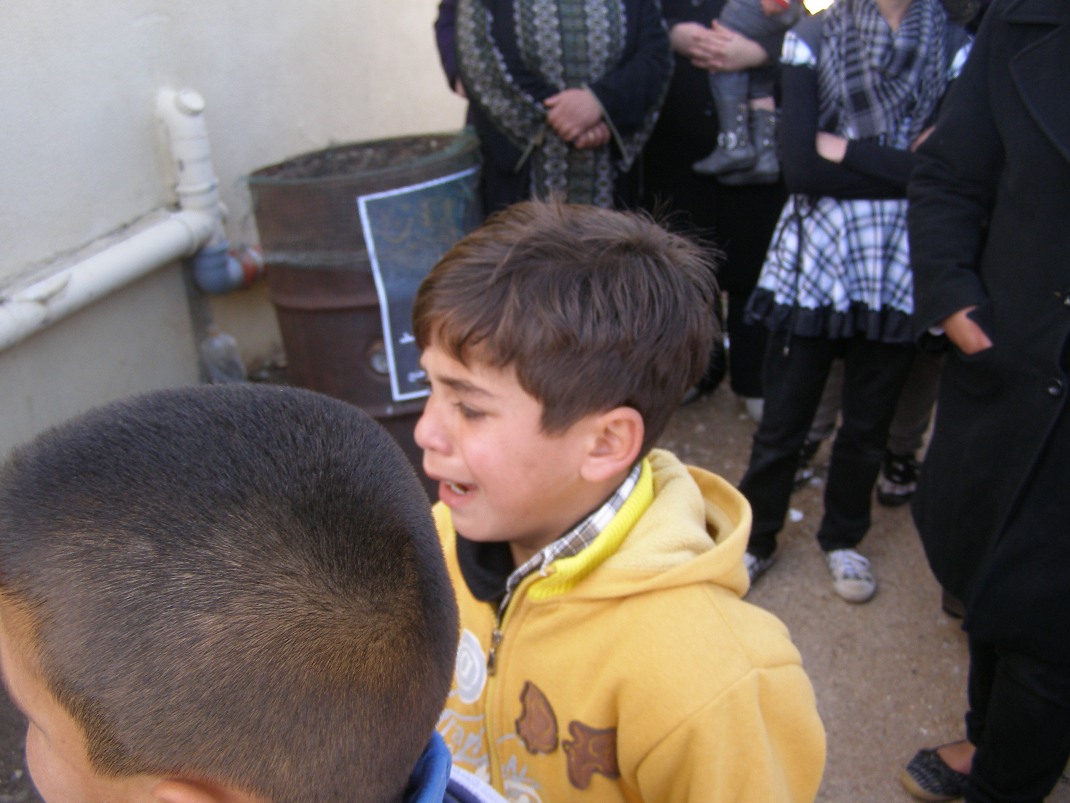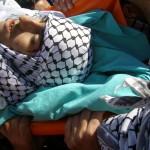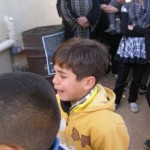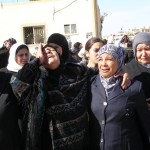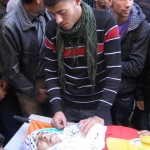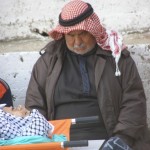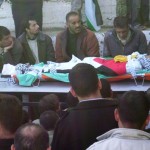Paulette S. | Christian Peacemaker Team
Our neighbor Haniya shrugged her shoulders as she spoke in a disheartened way: “This is all normal for us now. What can we do anyway?” Yet, when I see armed Israeli soldiers on the rooftops, and when I witness Palestinians going through checkpoints to go to the Mosque, I see this Occupation as an ongoing, huge human tragedy.
It’s been a long 40+ years now that the Israeli Occupation has ruled a huge section of the West Bank. Here Martial law governs thousands of people’s lives in almost every aspect of their days: travel: to their families, to schools, to health services, to their farms or to their stores.
My friend Fatima lived in a small outlying village, but due to lack of money, she moved to H2, Hebron, where she could work in a small shop owned by her sister. Fatima’s 7 children are now all teens, and one daughter is married. The two sons, though certainly bright enough, have quit high school. The reality of finding a good job after schooling is almost nonexistent, they reason. Because there is no mandatory schooling for Palestinian children, the children roam the streets, smoke, or help their family. Two times in the recent past, the Military snatched two of these working young men. One of these boys was using a cutting knife to help his father unpack boxes of store goods. The other boy was sent by his father on an errand, but the child’s coat resembled a policeman’s coat. The Military took him and questioned him for hours while his father reasoned with the soldiers.
Fatima, like many shopkeepers, opens her shop each morning very early, hoping that tourists will buy a dress or an embroidered pillow case or small purse or shawl that day. She and her sister have plenty of women who want to embroider for them, but Fatima barely makes enough money for her own family. Since her husband is not able to work, the family depends entirely on Fatima’s scant income. She and internationals constantly assure visitors there is no need for them to fear entering the Old City. Visitors see guns and soldiers throughout H2, but they soon learn that only the Palestinians are the target of M-16’s.
Fatima, like most parents, tries to live through the day as “normally” as possible with a good sense of humor. Already, one of her two sons, 15 years old, has been accused of throwing a stone at a soldier and despite all his insistence and those of eye witnesses who said he did not throw the stone, he served 2 1/2 months in an Israeli prison. Like many other families this family too borrowed and paid 1200 shekels on the release of their son. Israel makes a fortune from the “stone throwing” accusations dished out to young Palestinian men.
The day isn’t over when it’s over for these people. Parents with teenage sons rarely sleep soundly. Like a mother with a newborn baby, they worry that the night will bring soldiers breaking into their home, awakening everyone, locking the family into one room and then taking their teenage son with them to a prison. CPT’s 1st. year University friend, grabbed from his home at 1:30am, served 6 months in prison with no official charge against him. I ask myself: “How can anyone, any country not hear the cries of these people for compassion and justice?” Don’t they deserve a truly normal life also?

